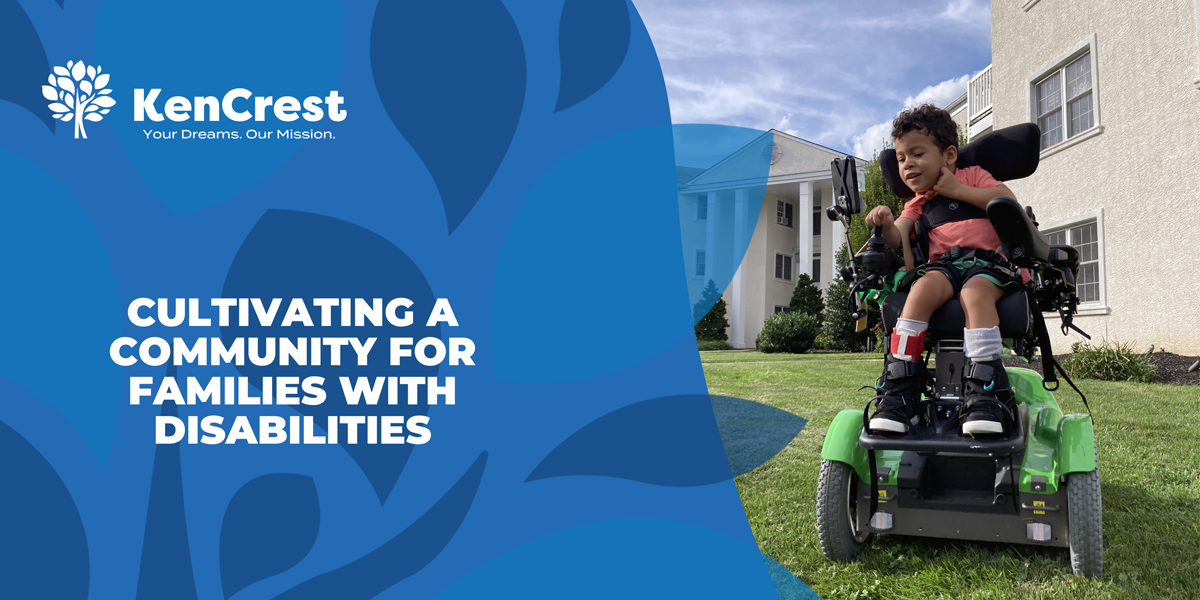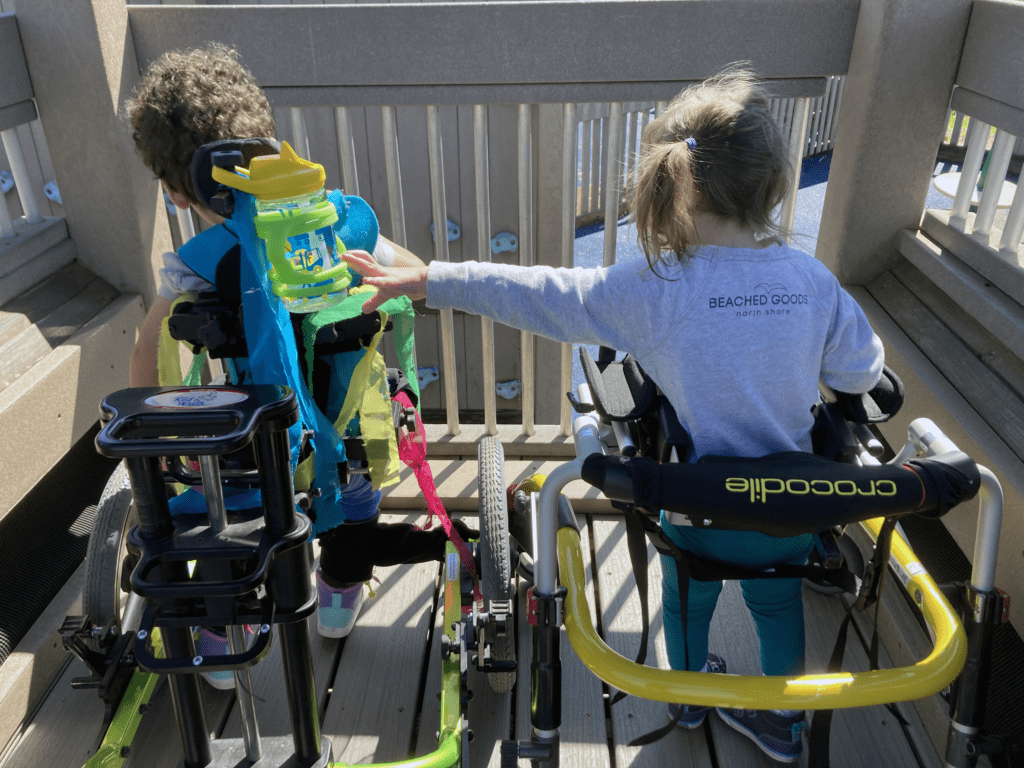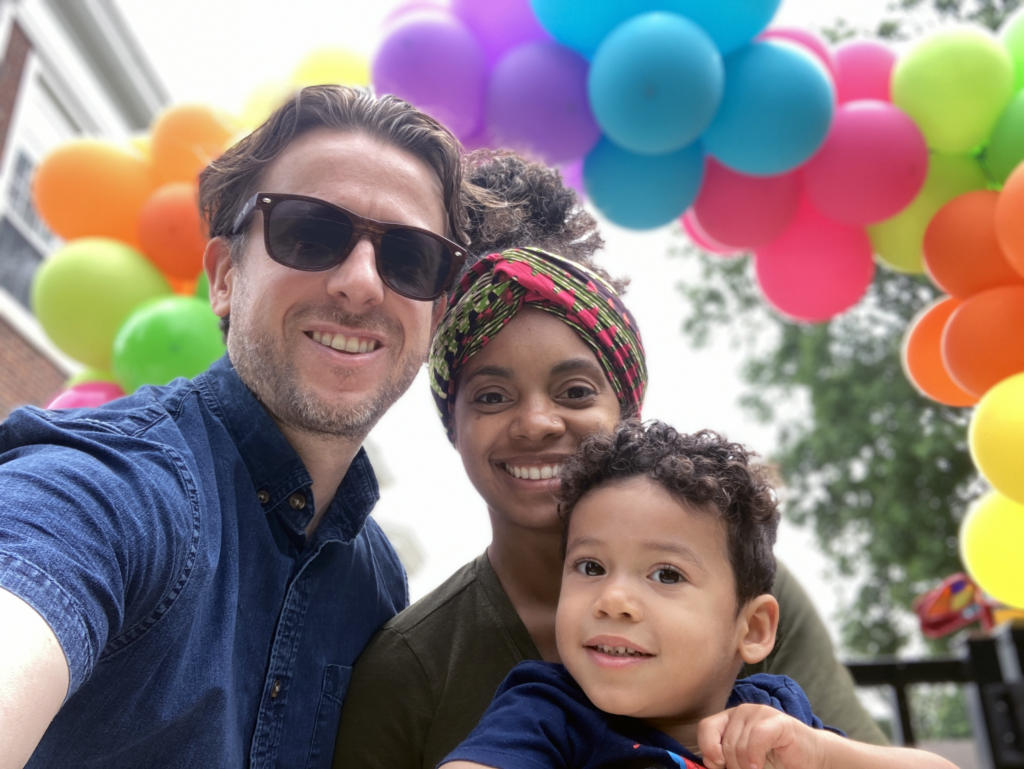Cultivating a Community For Families with Disabilities

Sana Garner talks about her experiences as a mom with a son who has a disability and what its been like cultivating a community for him.
By Sana Garner
Three years ago, my husband and I relocated to Philly to be closer to family and the Children’s Hospital of Philadelphia (CHOP). Our son, Apollo, is twice exceptional: he’s cognitively gifted and has cerebral palsy.
During his initial doctor and therapy appointments, we asked if anyone knew of in-person events or community groups for children and families like ours. And the replies were always, “No.”
Being a non-disabled parent, raising a child with disabilities is a unique type of parenthood. I have more roles than I ever thought possible: administrator, advocate, paralegal, multi-disciplinary therapist, tutor, chef, friend, personal care assistant, driver, Google university med school student, community organizer, and most importantly, mom. In between all this, I am a wife, and I eke out a tiny bit of time for my own personal identity. However, while I embrace all of my roles, I am also aware that I will never fully relate to many aspects of Apollo's life, no matter how much I empathize with him.
We needed a community beyond our local special needs Facebook group and doctors. We wanted Apollo to have friends who understood the aspects of his life that we couldn’t.
After another woodchip-covered playground visit, where I was yet again the only parent facilitating my child’s play, an idea came to me. I could start a playgroup for kids with motor differences and medical complexities.
I talked with Apollo’s KenCrest Early Intervention occupational therapist about my idea. She loved it and even suggested hosting it at a nearby inclusive playground I didn’t know about. I picked a date, made flyers, started social media accounts, and shared the info with everyone on Apollo’s team and our local special needs Facebook page.

We had our first Creative Movers Playgroup with about eight families a few weeks later. Our playgroup has been meeting monthly for almost two years now. And our email list has grown to over 50 families. Usually, 4-8 families come to play each month.
Like Apollo, children with disabilities have many structured forms of play, most of which are indoors. Rather than being a spontaneous outing, playing at the playground has to fit into his packed schedule.
Apollo uses a gait trainer and has a motorized wheelchair, so the playground must be wheelchair accessible. He also needs access to a bathroom with a changing station. Inclusive playgrounds offer Apollo a rare outdoor environment to play independently, where both disabled and non-disabled children benefit from playing with and being adjacent to each other.
RELATED: Apollo's Journey With Cerebral Palsy
Apollo attends a mainstream school, so our playgroup is his only opportunity to socialize with other kids with disabilities. He now has disabled friends and their siblings, with whom he is excited to play monthly. Our playgroup is normalizing disability for him.
A couple of days ago, Apollo met a girl with a rare genetic trait who is non-verbal. He drew parallels between this girl and some friends he has at Creative Movers. Apollo was comfortable with her touching his hand and arm, which he felt apprehensive about just a few months earlier. As a parent, I’m proud of Apollo for learning to embrace diversity and normalize disabilities.

Creative Movers Playgroup has given my husband and me the community we sought out for years. Even though our children all have different disabilities, there are common threads and overlap in our lives. Every choice we make for our kids has to be considerate and intentional so they will thrive. When we meet up with the parents at Creative Movers, our layered lives don’t have to be explained—we all get it.
My husband and I have become friends with the other parents in a short time. I now have a network I can bounce ideas off of, seek advice on navigating the medical, social services, and school systems, and share tips like the best shoes for AFOs that won’t wear down in the toe when Apollo drags his foot. The playgroup has been a gift in ways that I never expected. It has reconnected parents who lost touch over online group chats and connected us with families who were already playing at the inclusive playground when we were coincidentally playing there. Now, they are part of our community.
My goal for Apollo is that he will always have a strong sense of self and be confident and happy. I’m sure these are universal goals of all parents. The community our playgroup is cultivating is integral to Apollo’s successful development.
I hope other families with disabilities see my story as a roadmap for how to create a community that supports their entire family, too.
